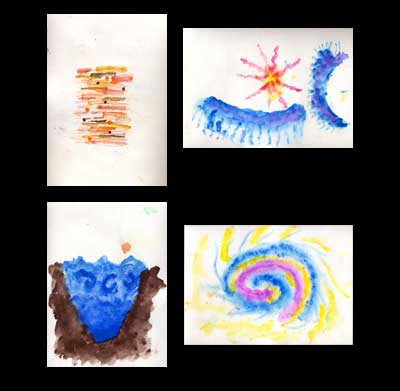The new year invited me to think and read about making positive changes. That's what New Year's resolutions are all about, right?
I was reminded what dangerous territory the idea of change is for me.
My adult life has been organized around coping with changes thrust upon me by living with a chronic illness. What with changes engendered by living at the turn-of-the-century and living through an uncertain economy, etc., most human beings are coping with enormous amounts of change. The new jargon for grace in response to change is "resilience." Building skills in this area is a survival mechanism for all of us.
But what about inviting change? I've been spending time recently with a book called The Power of Less, by Leo Babauta.
I was attracted to the book because Babauta is the author of the popular blog Zen Habits. I hoped he would not get too aggressive and heroic with his advice about how to make changes.
The book does, indeed, take a gentle and sane approach to change. Babauta encourages us to identify what is essential in our lives and eliminate the rest. It is about simplification.
I enjoyed and was inspired by the first 60 or so pages and then found myself getting into trouble. It took me a few days of processing (I'm not the fastest heifer in the stampede) before I realized my difficulty and made accommodations.
Babauta's Power of Less Principles-- and his explanation of them-- are fine:
- Set limitations.
- Choose the essential.
- Simplify.
- Focus.
- Create habits.
- Start small.
In the second part of the book, "In Practice," he gives examples of how to apply the principles in various areas of our lives. I found myself getting more and more frustrated with this section, until I identified my difficulty.
My problem, it turns out, is that I have little control over the practicalities of my life. I can't, for instance, get up half an hour earlier and create a new morning routine without inconveniencing several people. I have to have help to get out of bed, get dressed, have a cup of tea… I have to have help with pretty much everything on his morning routine list. I ran into similar trouble with many of Babauta's suggestions.
I returned, as I often do, to the safety of the serenity prayer: God grant me the serenity to accept the things I cannot change, the courage to change the things I can and the wisdom to know the difference.
Babauta's book encourages us to think about goals and projects. To his process, I need to add:
- Identify tasks wherein I have control.
- Identify tasks with which I would need to ask for help.
- Decide with which tasks I am willing to ask for help.
- Identify potential helpers.
- Ask for help as decided.
My experience is that asking for help comes with a cost. If I have consciously decided to ask for help and accept the cost, then I will find it easier to make the changes I want to make.
Babauta's emphasis on focused, small, present-oriented changes makes it a good fit for someone like me who is working within limitations. As with most life processes, however, I have to take a little extra time to tailor his suggestions to my specific needs.






